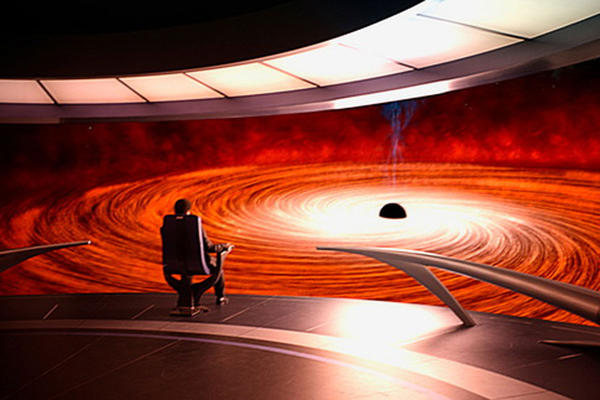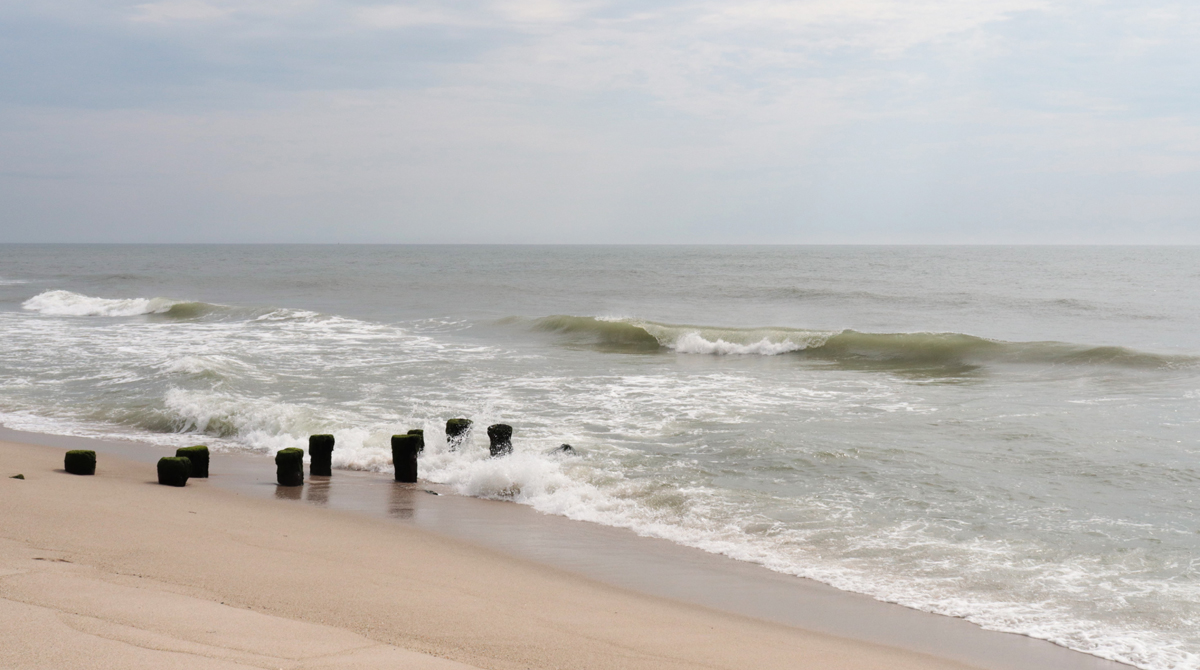Do You believe in Ghosts? Cosmos: A Space Time Odyssey: Episode 4
Is it possible for a television program to be transcendent? Is it possible for a show to reach a level of perfection that causes all others to pale in comparison and subsequently make all others seem meaningless? Actually, the answer in no. That’s a bit over the top even for me.
But all hyperbole aside the most recent episode of Cosmos, A Sky Full of Ghosts was about as close to perfection as a television program can get. And it touched me on a personal level that is a bit difficult to explain.
But then, I’m a sucker for time travel.
It starts with a profile of William Herschel. He and his son, John, stare into the nighttime sky, at the multitude of stars, the endless pinpoints of light. “Do you believe in ghosts,” the son asks the father. “Oh yes,” Herschel replies. Just not in the way everyone else does.
Every time we look into the night sky we look back in time. What we see is not really there. Depending on the distance of the star the amount of time that light took to reach us could be centuries. Centuries upon centuries. In a single glance we can look across eons. Empires and civilizations rose and fell and rose again in the time it took for that light to reach us. We are, all of us, time travelers and seers. We see into what once was. The ghost-light of the past.
It is humbling and it is immense. Cosmos again delivers a very abstract notion in a compelling and entertaining way. And it didn’t stop there.
At this point the program mentions the Creationist view that the world is 6,000 years old. Now in past entries I have criticized the program for its attempt to use religious language and its attempt to address doctrinal views of the Universe. The reason being that when you use someone else’s terminology to explain your own ideas you give the other a kind of authority it does not deserve. When science uses spiritual terms it seems as if it is responding to the challenge of religious authority rather than just being, you know, the rational explanation of reality using the evidence of empirical research and experimentation. However in this instance the use was quite brilliant.
You see by taking into account the speed of light (which, by the way in not in question. It is a verifiable 186,282 miles per second) a 6,000 year old Universe would be a mere fraction of what we know it to be. By believing in time you reduce the grandeur of creation and by implication the Glory of God. It’s a nice rhetorical argument and I found myself nodding in approval.
We then take a quick jaunt to the countryside of Italy to meet Einstein as a boy and lean some mind experiments he had the led to the theory of relativity, the nature of time and the curve of space. And discovery of Black Holes. And the Big Bang.
These are incredibly hard things to wrap your mind around. Sure, we first hear about the Big Bang and Black Holes we think we understand. But the more you think about it the more confusing these concepts become. When the first episode of this program aired I watched it with my daughter. When discussing it with her afterwards she said, “The Big Bang makes my head hurt.” And then she asked the inevitable questions. What came before? And, if there was nothing how did everything come to be? I smiled.
You see, I was not much older then she is now sitting in science class learning about these things. My teacher ran quickly over the details and we were told to memorize them. But I was intrigued, I was curious, I was confused. So I raised my hand and I asked the same questions my daughter had asked me. And my teacher said to me (and I will never forget this because it stuck with me for years), “That’s a stupid question. Why would you ask such a stupid question?” I slowly put my hand down and tried very hard not to make eye contact with my classmates.
It took me years to realize that this teacher (who will remain nameless) just didn’t know the answer and didn’t want to look foolish in front of his class. But in order to save face he discouraged curiosity. I don’t think that’s a good idea. So when my daughter asked about the beginning of all things I said, “I don’t know. But I hope someday to find out.”
And then Neil deGrasse Tyson, in a dramatic scene depicting a spaceship crossing the event horizon of a Black Hole, described how, as all know physics and space and time breakdown, you could look back and see the entire future history of the Universe happening all at once. The extreme gravity stretches it beyond understanding; deforming spacetime into something…unknown. Perhaps sending us to another universe, causing another big bang; that causes more black holes, which cause more big bangs. Infinite creation. A thought experiment of course, but maybe that’s how our Cosmos came to be.
Wow. I said it out loud. It sounds silly and I was probably overreacting, but I nearly cried. Seriously, my eyes swelled up for just a second. The idea was simple and perfect and lead to many more questions.
So is it possible for a program to be transcendent? No. Is it possible for a program to be absolutely perfect? No. Is it possible for a program to move you to tears because it answers questions you’ve had since childhood and reinforce your love of learning? Oh, yes.











Andy Garcia says:
Joe says:
Paul Matthew Carr says: